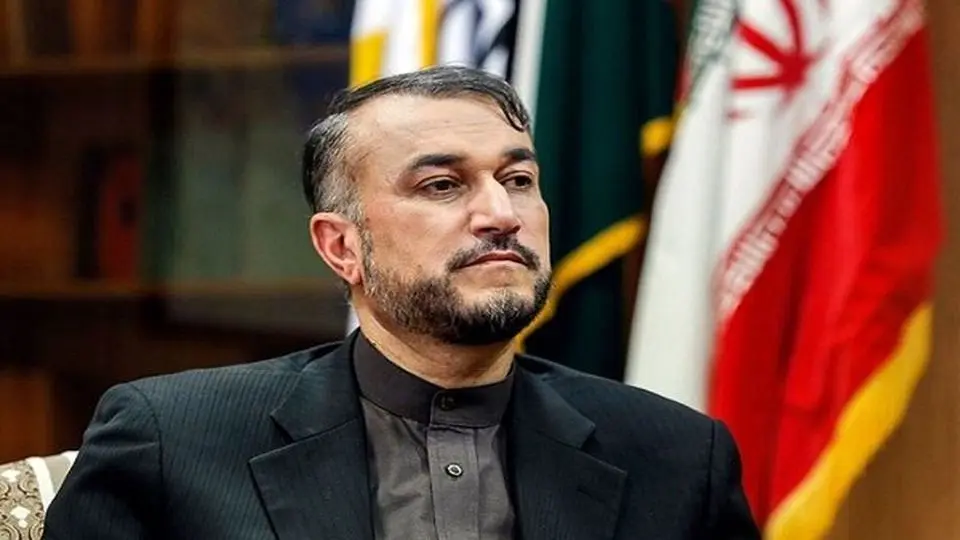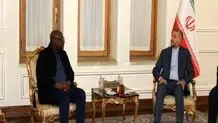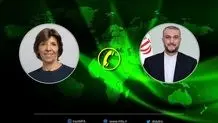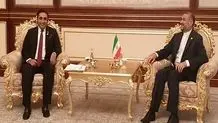FM to American media:
Pardoning convicts showed Leader's special attention to mercy
The Leader of the Islamic Revolution pays special attention to the issue of clemency and mercy, the Iranian Foreign Minister said, referring to the Leader's pardoning of tens of thousands of people arrested in the recent riots.

MEHR: The Leader of the Islamic Revolution pays special attention to the issue of clemency and mercy, the Iranian Foreign Minister said, referring to the Leader's pardoning of tens of thousands of people arrested in the recent riots.
Speaking in an interview with an NPR correspondent, Iranian Foreign Minister Hossein Amir-Abdollahian briefed on Tehran's position regarding recent domestic developments.
First of all, he answered a question about the action of the Leader of the Islamic Revolution Ayatollah Khamenei in pardoning tens of thousands of rioters arrested in the recent riots obe the anniversary of the Islamic Revolution.
"In the name of God, the most compassionate, the most merciful, at this very outset, allow me to point out that when you say tens of thousands have been detained, well, this is not exactly accurate, and this I say categorically. First of all, no student whatsoever was detained at the universities or premises of the universities during the riots. In fact, those who were detained were people who played a role in the riots on the streets. That being said, hundreds were carried away. And on that basis, they acted in riots. On the occasion of the victory of the Islamic Revolution, these people - hundreds of people who have been detained - were pardoned. The Leader of the Islamic Revolution pays special attention to the issue of clemency and mercy. And, therefore, the decree is to release all these detainees, save for those who have committed murder or other serious crimes," Amir-Abdollahian said.
Regarding the death toll of recent west-back riots, he said, "I guess we see some sort of overstatement in these figures, even if it has been said by human rights groups. The number of those killed during the riots have also been played up. You see something important played out during the riots. Despite high tension during the riots, the police were not allowed to carry firearms. However, American and Israeli armament came through from some of our neighboring countries with little stability. Now, what they did was to wreak havoc amongst the mobs and masses and, in fact, resorted to the armament in question."
Answering a question about the alleged situation of journalists in Iran, Amir-Abdollahian said, "No journalist was detained during riots. You see, just two weeks ago, something happened in Iran. A scammer was to flee Iran. What he did, in order to help his escape, was to post videos on social media saying that - claiming that he was a protester, that he was subjected to torture. But in fact, he was a scammer and a fraudulent person. And at the end of the day, it turned out that he was threatened. He was arrested by the police. You see, the West has carefully and meticulously targeted the riots. Allow me to ask this question to you. You see, there was a lot of maneuvering on Mahsa Amini by Western media. But when it comes to Shireen Abu Akleh, did they really cover her?"
"We cannot confirm the detention of journalists in Iran. It's very easy to relabel the person who has been detained. You could, at any moment, call that person in question a defendant of human rights, a journalist, among others," he said.
"We admit that there are problems in Iran, just like elsewhere in the world. Back in September, when I was New York, I happened to have the opportunity to roam about a little bit in New York and see the underground stations past midnight. I, in fact, talked to some of the citizens. And the responses I got from American nationals were worse than the response that you got from that Iranian man. And therefore, it pretty much depends on which population sample you choose for your information. This constitutes an important part of democracy in Iran. People can freely voice their ideas," he said in response to a question about Iran's domestic problems.




